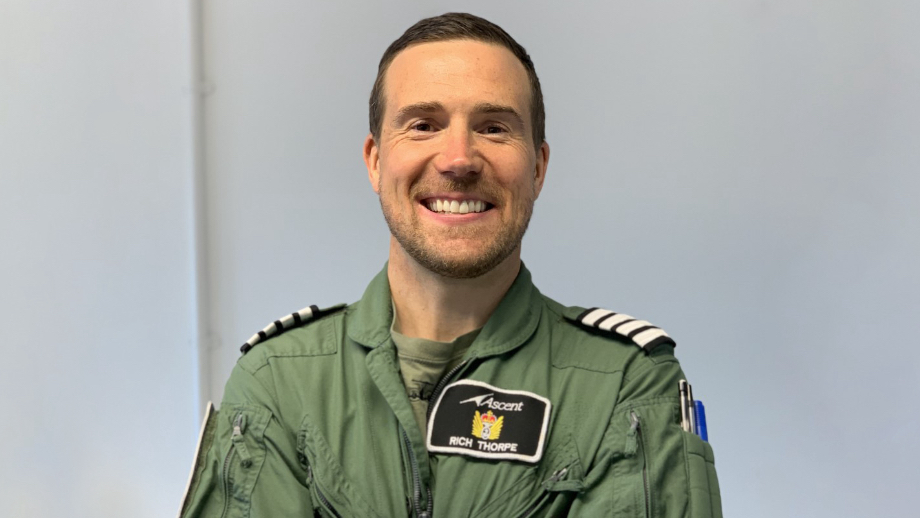Richard Thorpe, Qualified Observer Instructor

What attracted you to work at Ascent?
One of the biggest draws to this job having left a long career in the Royal Navy, was the focus purely on teaching and instructing aviation. Every day is different, as I could be instructing in the aircraft, simulator or classroom, and often a combination of all three. Clearly, with a passion for flying, and with 750 Naval Air Squadron’s primary purpose being to train and generate the next generation of rear-crew, I most look forward to flying in our King Air Avengers.
What does your role as a Qualified Observer Instructor involve?
On a typical day, we fly 2 waves of 4 aircraft, enabling us to achieve up to 8 sorties (Cornish weather permitting!) Our role is to train the next generation of rear crew aviators in navigation, sensors, radios and crew co-operation.
I would generally aim to be in at least 90 minutes prior to my sortie brief. This allows me to gather all of the relevant information required including the weather forecast, aviation warnings for the area of flight, and reading the student’s previous reports. For some sorties, I may need to make bookings at other airfields, deconflict from other aircraft, and make a detailed plan for when to inject scenarios for the student to handle. A quick chat with the pilot suffices to talk through my plan and timings.
30 minutes prior to the brief, I will see the student in flight planning, assessing their preparation, and ensuring they understand the aims of the sortie clearly. This will involve some guided questions, and eliciting how they are going to improve on previous shortcomings.
From the sortie crew brief, during the flight, and debrief I will monitor, assess and coach the student in the safe application of operating procedures. We fly all across the South West, from Scilly Isles up to South Wales, and across to Yeovilton. In a 2 hour trip, we can cover a large distance in our multi-crew aircraft, and I still find myself sight-seeing as flying is never boring! During the debrief I will elicit the areas for improvement that the student needs to focus on; they always learn more from making mistakes than from flying the perfect trip!
Whether in the simulator or aircraft, I will then write a detailed report on the facts of what happened in the sortie and the agreed changes they will try to implement to improve.
What are the benefits of working at Ascent & why would you recommend working here?
Time-permitting, I also like to keep fit using the excellent gym and pool facilities that Ascent pay my membership for. Other benefits include reduced-cost health and dental insurance, a good pension scheme, and exclusive online shopping offers.
Working for Ascent for almost 3 years, I really like the flexibility, variability, and first-class flying training that as a company we provide.

